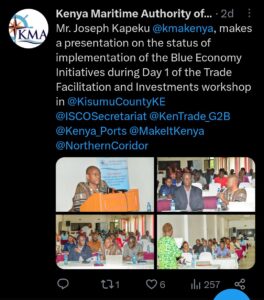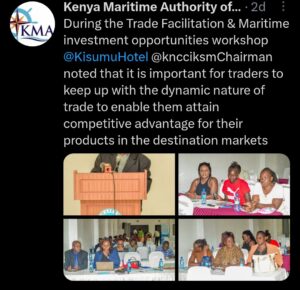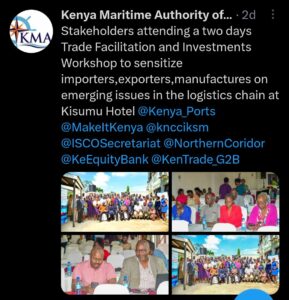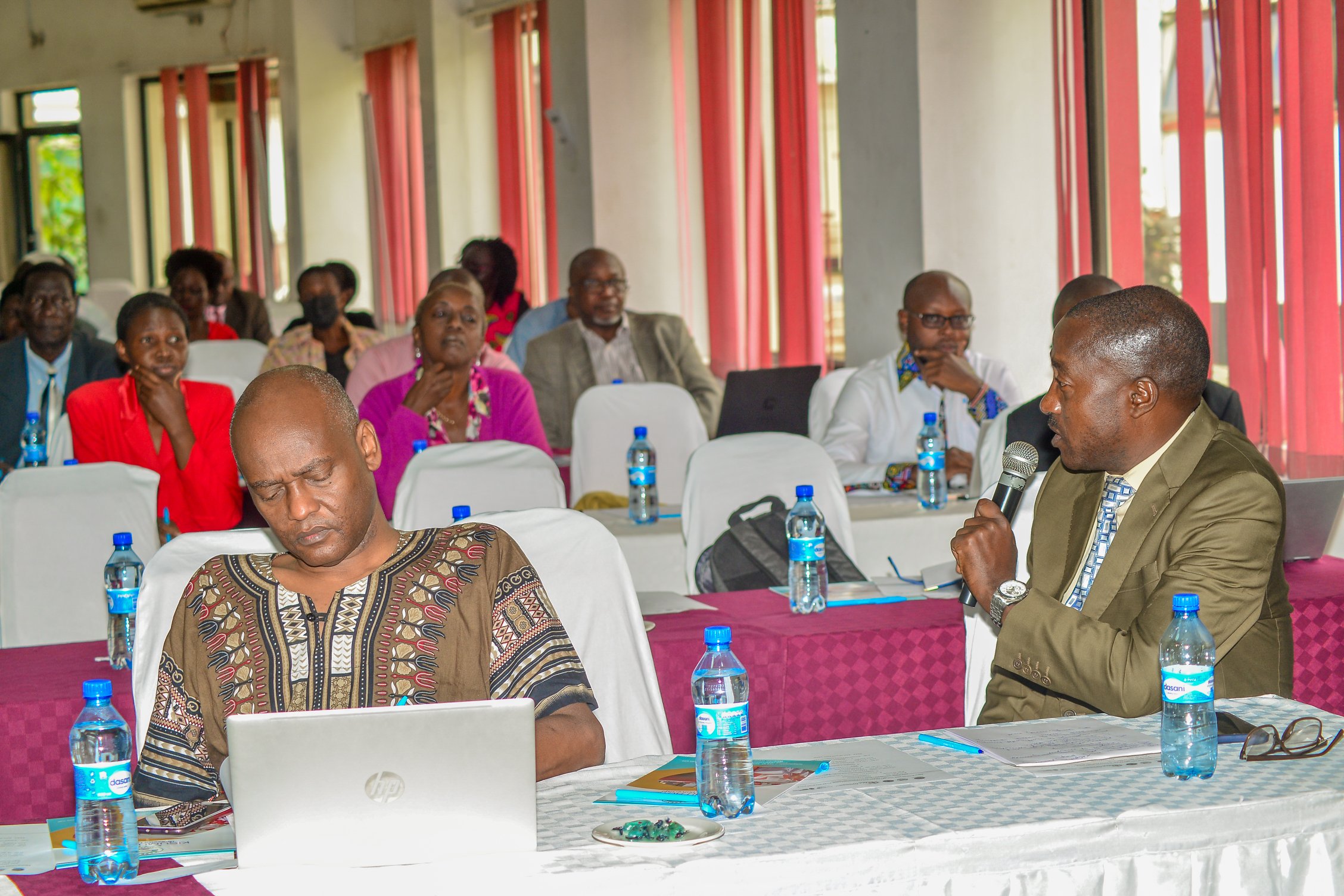- The program by Kenya Maritime Authority KMA aims at empowering Kenyans into seeing the potential that exists once they invest in the blue economy.
- The authority held the workshop in Kisumu county.
- The blue economy was in many ways described as Kenya’s next great economic growth frontier through its vast wealth potential in fisheries, ecotourism, shipping, marine energy and biotechnology.
Follow us on Facebook and Twitter for real time updates
Kenya Maritime Authority (KMA) has instigated a sensitisation program to endow the community into realising the prospect of capitalizing in the blue economy sector.
As part of the initiative, KMA in partnership with other stakeholders organised a Lake Region trade facilitation and maritime investment opportunities workshop in Kisumu County.

The two-day conference targeted to teach local traders, shippers, manufacturers, clearing agents and representatives from academia on their functions in repressing the opportunities within the blue economy.
The Assistant Director of Port and Shipping Services, KMA Joseph Kapeku who was quoted by the authorities twitter handle, exhorted investors to capitalize on the opportunities in the maritime sector.
In his statements, Kapeku depicted the blue economy as Kenya’s next great economic growth frontier through its vast wealth potential in fisheries, eco-tourism, shipping, marine energy and biotechnology.

“There has been over-exploitation of the resources on the land mass making it ideal to shift our investment activities on the lakes and the Ocean which equally has opportunities for job creation and spurring the economy,” noted the Assistant Director.
The Kisumu port upgrade, he added, has promoted regional trade further expanding markets in the entire East African Economic Bloc.
The revamped water transport on Lake Victoria, Kapeku identified through his twitter page, has addressed the border challenges and untangled the long delays in moving goods through Busia and Malaba borders, thus, enhancing the efficiency of supply chains and trade competitiveness in the region.
“It is important to ensure low logistics costs and reduced procedural delays for goods at the entry points to enable the entrepreneurs and the government to benefit from the venture,” said Kapeku, adding that inefficiencies at the border posts hurt local businesses by the surge in cost of doing business making Kenya’s exports less competitive in the regional market.
Speaking at the same event on Thursday, through a video on Facebook, the Chairman of Kenya National Chamber of Commerce and Industry (KNCCI) Kisumu region, Israel Agina reiterated that the business community needs to explore the immense options to unlock the economic potential in the sector.
At the same time, Engineer Agina challenged traders to strictly adhere to international standards and guidelines and adopt best practices to attain competitive advantage for their products in the destination markets.

“Technology and business trends call for traders to keep up with the changing aspects of international shipping. There is a need for us to keep up with the dynamic nature of trade to address the increasing cost of doing business which results in expensive prices of products, thus, the high cost of living,” he stated on the official twitter handle.
He applauded the government for its efforts to automate the export and import services through the implementation of the Trade Facilitation Portal by the Kenya Trade Network Agency (KenTrade) to streamline cargo clearance.




























